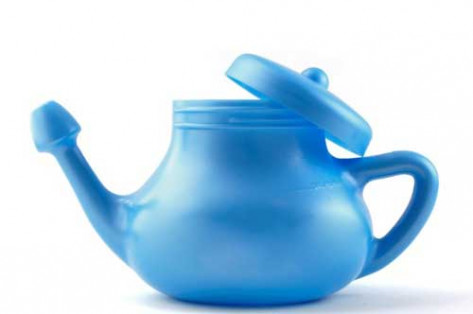It happens to almost all of us. We go out into the dry, cold winter air and our nose starts to run.
It’s known as “skier nose.” But it also has a medical name. Doctors call it “cold-induced rhinitis.”1
One study found it affects 96% of us. People with asthma and allergies are usually affected more severely.2
It’s annoying—but your runny nose actually keeps you healthy. It traps and expels disease-causing bacteria and viruses. This stops them from getting into your lungs, where they can start an infection.3
The mucus membrane of your nose needs warmth and moisture to function optimally. So when you breathe cold dry air, the nerves in your nose send a message to your brain that it needs more moisture and warmth.
Your brain responds by sending signals to increase blood flow to the nose. When your nose blood vessels dilate, they warm the incoming cold air. And they trigger the production of more and wetter mucus.4
The result? That annoying drip, drip, drip.
It sounds a little gross, but skier nose can cause you to excrete 1-½ cups of fluid a day through your nose.5
Beware of This Sniffles Remedy
The last thing you should do is reach for popular over-the-counter antihistamines, such as Benadryl, that contain diphenhydramine. It is in a class of drugs called anticholinergic agents. They work by blocking neurotransmissions from your nose to your brain that cause a runny nose.6
But studies link anticholinergics to brain damage in seniors. Indiana University researchers found that anticholinergics cause structural changes in the brain that lead to memory loss.
Your Brain on Benadryl
Another study published in JAMA Internal Medicine by researchers from the University of Washington’s School of Pharmacy found a strong link between long-term use of anticholinergics—like Benadryl—and dementia.7
The best way to deal with skier nose is to simply use tissues or a handkerchief. The stuffy nose should clear up quickly when you get indoors.
If it doesn’t, try a neti pot. It’s a container designed to rinse debris from your nasal cavity with salt water. They are sold at drug and health food stores.8

To use it, tilt your head sideways over a sink. Place the spout in the upper nostril. Breathing through your open mouth, gently pour the saltwater solution into your upper nostril so that the liquid drains through the lower nostril. Repeat on the other side.
Use only clean distilled water for this. Never use tap water.
And the next time you’re out in the cold and get a runny nose, don’t get annoyed. Remember that it’s just your nose doing its part to keep you healthy.
Like this Article? Forward this article here or Share on Facebook.
References:
1 http://www.cnn.com/2017/12/13/health/nose-runs-cold-partner/index.html
2 https://www.ncbi.nlm.nih.gov/pubmed/1859038
3 https://www.popsci.com/why-does-your-nose-run-when-youre-sick
4 http://www.cnn.com/2017/12/13/health/nose-runs-cold-partner/index.html
5 http://www.cnn.com/2017/12/13/health/nose-runs-cold-partner/index.html
6 https://en.wikipedia.org/wiki/Benadryl
7 https://www.health.harvard.edu/blog/common-anticholinergic-drugs-like-benadryl-linked-increased-dementia-risk-201501287667
8 https://www.mayoclinic.org/diseases-conditions/common-cold/expert-answers/neti-pot/faq-20058305

